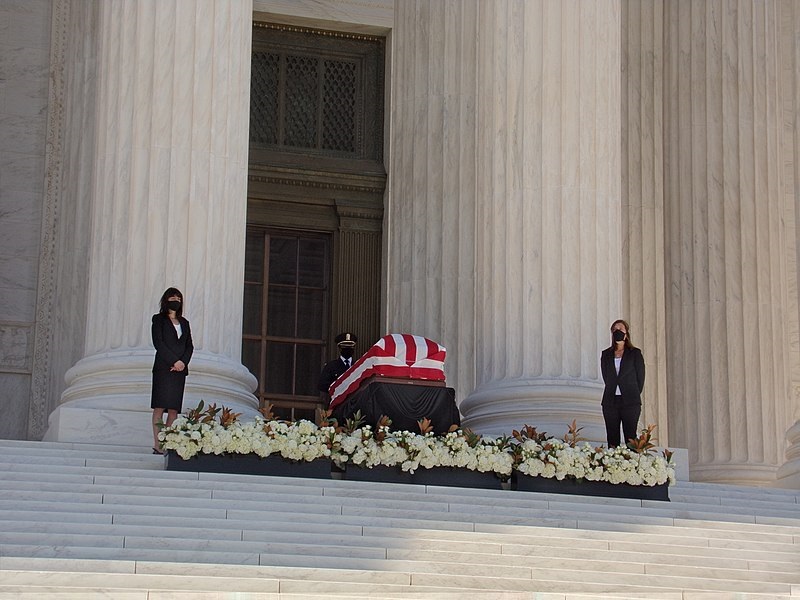A little over a month ago, on September 18, Supreme Court Justice Ruth Bader Ginsburg passed away at the age of 87 due to complications from pancreatic cancer.
Justice Ginsburg served on the Supreme Court for 27 years. She was born March 15, 1933, in New York City, and did her undergraduate work at Cornell University. After graduating from Cornell, she began studying at Harvard Law School, but eventually transferred to Columbia Law School, where she graduated first in her class.
Prior to becoming a federal judge, Ginsburg worked with the American Civil Liberties Union (ACLU). There, she co-founded the Women’s Rights Project and became its general counsel.
In 1993, President Bill Clinton nominated Ginsburg to the Supreme Court. Ginsburg played a notable role in a number of historic cases, and is especially recognized for her work for gender equality.
Prior to her role on the Supreme Court, Ginsburg won many prominent cases for the ACLU, her victories setting important precedents for US Federal laws.
As an attorney, Ginsburg participated in many notable cases, including Weinberger vs Wiesenfeld (1975). In this case, Ginsburg argued for a husband who wished to collect social security benefits after his wife passed away. Ginsburg argued his case before the Supreme Court, and the denial of the benefits was deemed to violate rights to equal protection. In another historic case, Edwards vs Healy (1975) Ginsburg asserted that it was unfair for women to be excluded from jury duty in Louisiana. She reasoned that this policy was unfair to multiple groups: women who did not receive a jury of their peers, women whose citizenship was diminished by losing their right to sit on a jury, and men who were called in for jury duty more often.
Both of these cases reaffirmed the legal power of the Equal Protection clause as described in the 14th Amendment, and continue to serve as important precedents for contemporary cases involving discrimination against minority groups.
During her time on the Supreme Court, she was known for her work on cases like United States vs Virginia (1996), where the Court questioned the Virginia Military Institute’s admission process. Ginsburg wrote the majority opinion in this case, which declared the state university’s men-only admissions policy violated the Equal Protection clause.
The impact of Ginsburg’s death was felt across the country. Teagan Ditsworth is a senior at East who said she “was deeply saddened” to hear of Ginsburg’s passing.
“Her actions rightly inspired a nation,” said Ditsworth. “Her accomplishments were achieved despite the barriers faced by women.”
East junior Daniella Taylor believes that Ginsburg was “an icon for feminism.”
Ginsburg was the second woman to ever serve on the Supreme Court — Taylor commented on this, saying that Ginsburg’s legacy is crucial in “creating a greater presence for women in politics.”
The movie On the Basis of Sex (2018) is based on Ginsburg’s early life and cases. According to Taylor, this film highlights another aspect about Ginsburg: how she “inspired millions of people simply with her life story.”
Ginsburg was first diagnosed with colon cancer over two decades ago, and continued to serve on the Supreme Court while fighting the disease. In this time, she was also diagnosed with pancreatic and lung cancer.
Currently, a new Justice has not been confirmed to fill Ginsburg’s seat on the Supreme Court. Former Notre Dame law professor and circuit judge Amy Coney Barrett has been nominated by President Donald Trump, but confirmation hearings remain underway. The nomination has sparked controversy across the country due to the close proximity of the presidential election.









